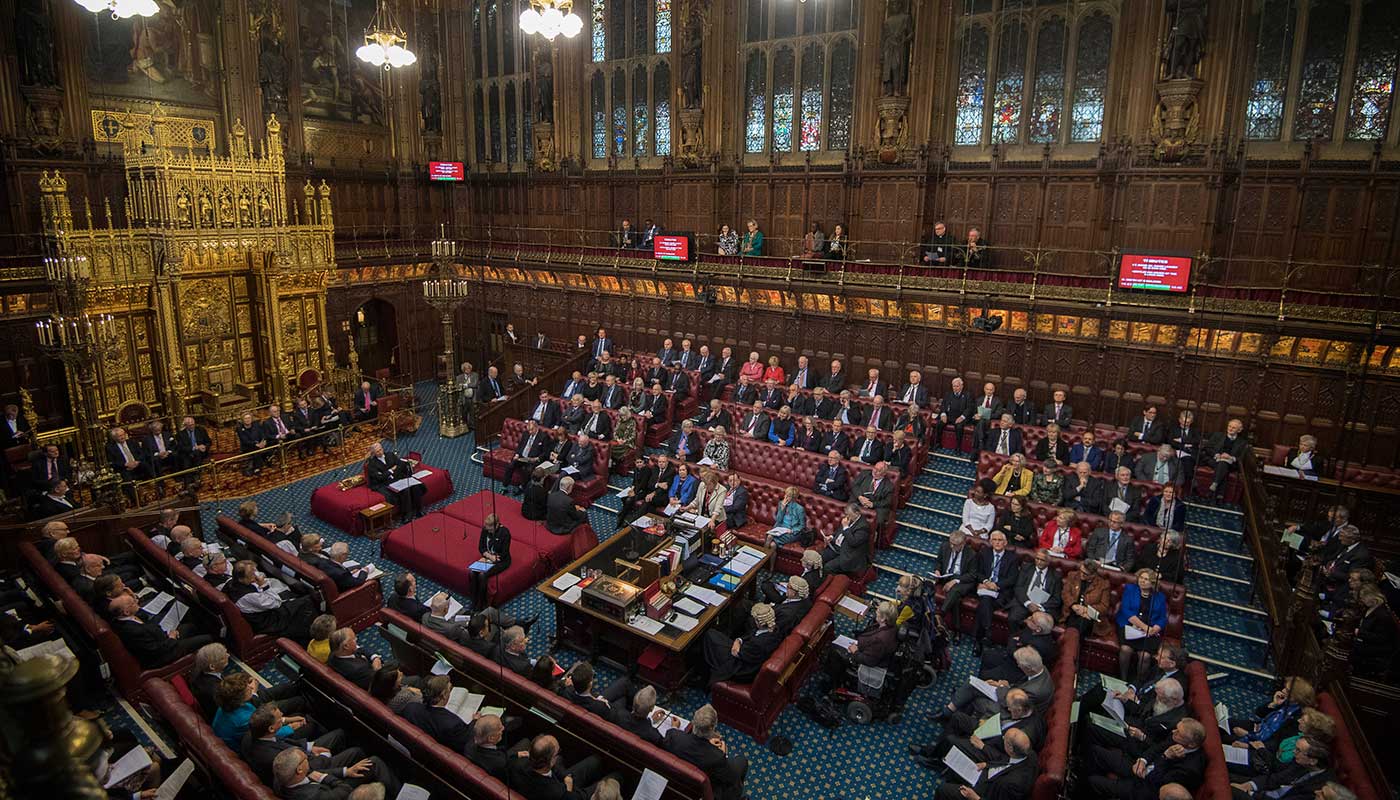Can the House of Lords stop Brexit?
Theresa May accused of trying to ‘ram through’ controversial bill by appointing new Tory peers

A free daily email with the biggest news stories of the day – and the best features from TheWeek.com
You are now subscribed
Your newsletter sign-up was successful
Theresa May is reportedly planning to hand peerages to about ten Conservatives and one DUP member, in a bid to strengthen her hand in the House of Lords during Brexit votes.
The Prime Minister has lost 15 Lords votes on the EU Withdrawal Bill.
Labour peer and fervent Remainer Lord Adonis claims May is now intent on “stuffing” the Lords with loyal peers in an attempt to push through her Brexit agenda.
The Week
Escape your echo chamber. Get the facts behind the news, plus analysis from multiple perspectives.

Sign up for The Week's Free Newsletters
From our morning news briefing to a weekly Good News Newsletter, get the best of The Week delivered directly to your inbox.
From our morning news briefing to a weekly Good News Newsletter, get the best of The Week delivered directly to your inbox.
He told The Guardian: “This is a classic example of packing the Lords to try and make Brexit easier to endorse.”
Can the Lords block Brexit?
In a word, no. Although “ping pong” between the Lords and the Commons can delay the passage of divisive bills, constitutionally it is the elected chamber who have the final say.
So why is the Government so keen to quell the dissent in the upper chamber? Rejection from the House of Lords is a bit like a public telling-off, says the BBC’s Esther Webber.
A free daily email with the biggest news stories of the day – and the best features from TheWeek.com
“It’s embarrassing, people sit up and take notice,” she says - which is the last thing the Government wants, with a febrile lower chamber brimming with potential Tory backbench rebels.
“As any teacher knows, naughty behaviour can be catching,” Webber adds.
But even another defeat in the Commons would not be enough to stop Brexit.
Can Brexit legally be stopped?
From a legal standpoint, the wording of Article 50 means that triggering it is only a statement of the UK’s "intention" to withdraw.
"Legally, you may withdraw an intention, or change it, or transform it into a decision," the EU Council's chief legal counsel, Jean-Claude Piris, wrote in the Financial Times in 2016.
“The odds are against stopping Brexit”, but “it can still happen”, agreed former Brexit negotiator Steve Bullock in an article for The Guardia last month.
“Successive statements by EU leaders have made it clear that, for the EU27, the UK abandoning Brexit is still a preferred option.”
For instance, last year European Commission President Jean-Claude Juncker expressed his hope that "the day will come when the British will re-enter the boat".
“Time is tight, but it was always going to be, and there are good reasons to believe that the EU27 would grant an extension for democratic processes in the UK to play out,” says Bullock.
“The main obstacles are political, not legal.”
Could it actually happen?
The “most plausible” route to preventing Brexit “is a proposal to amend the law that will give effect to the Brexit deal, to make it subject to another public vote”, says The Times.
However, while there are "plenty of people who voted Leave who are now not so sure", holding a second EU referendum is a "hot croissant", writes Sky News correspondent Michelle Clifford.
Any attempt to overturn the Brexit vote would put MPs on a collision course with pro-Leave campaigners and the Eurosceptic press, which has repeatedly accused Remain politicians of plotting to “subvert the will of the people”.
The Daily Mail controversially branded High Court judges “enemies of the people” last year, after lawmakers prevented the Government from unilaterally triggering Article 50.
Another potential way in which Brexit could be prevented would be for the Labour Party to win power in a surprise general election, paving the way for pro-Remain MPs to force through a vote on revoking Article 50.
“To put it kindly, both these scenarios are possible, rather than likely,” says the Times. “But stranger things have happened in politics over the past two years.”